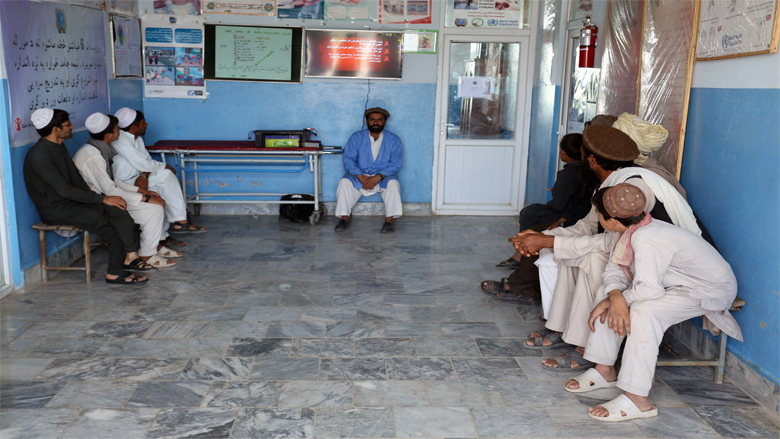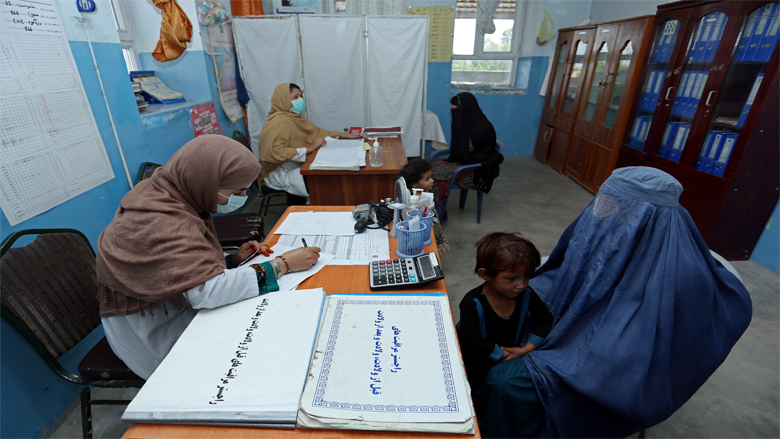TANAI DISTRICT, Khost Province – A short clip about vaccinations is playing on the TV of the waiting hall. All eyes are locked on the screen. A young girl talks about the importance of vaccination in early childhood. She directly encourages people to bring their children to the nearest health center for vaccination.
Alif, 60, is sitting in the tiny waiting hall of the Dargai Comprehensive Health Center (CHC) for a routine vaccination visit. Next to him is his grandson, 4, whom Alif has brought for a vaccination. They are not alone in the hall, a group of more than 20 people are also there, watching the health awareness clips and making small talk.
Alif lives in Khost Province, in southeast Afghanistan. Eight years ago, people of the district were very conservative when it came to health matters. Alif remembers the time when his brother died of appendicitis because they didn’t take him to a health center. “In the past, when a person had an illness in the village, people thought it was infectious and denied treating them normally,” he says. “It was hard, especially for those who had tuberculosis, because people used to believe that it did not have a cure.”
Today, residents in Tanai district are more informed about health matters. Dargai CHC holds public health awareness campaigns regularly, carried out by 24 Community Health Workers (CHW). In addition to the campaigns, doctors in the health center engage in public awareness. The TV in the waiting hall is another source of information. “We are very lucky that our doctors have a good understanding of our culture and traditions. They understand us well and deliver the services efficiently,” remarks Alif as he prepares to take his grandson into the vaccination department.



